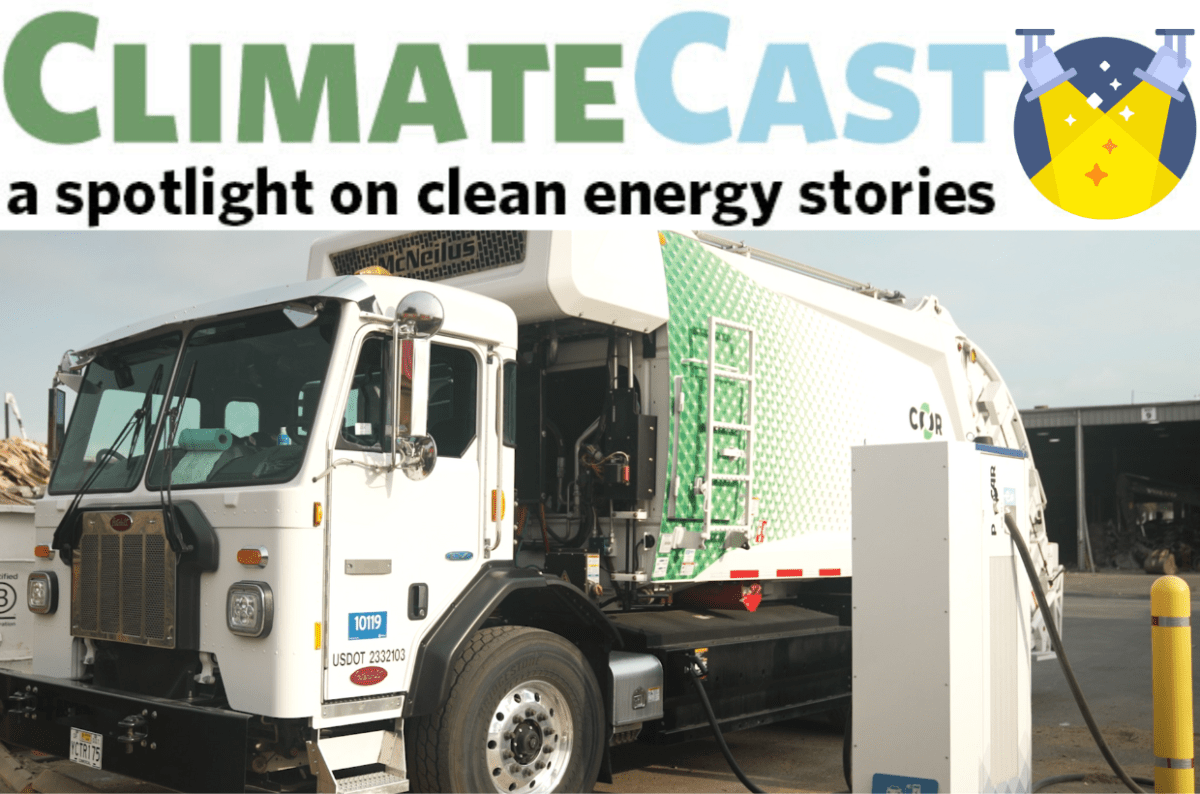How would you describe trash pickup day? The garbage truck rumbles noisily down the road, emptying the bins from each house into its compactor and leaving behind a haze of exhaust in its wake. Where I live, all this happens while my neighbors take their kids to school, start their work commutes, or walk their dogs. However, a waste hauling company in Portland, Oregon, is taking tangible steps toward improving this experience and cutting air pollution and noise in neighborhoods all around town.
City of Roses (COR) Disposal & Recycling is a family-owned business that hauls and processes trash, recyclables, and other discarded materials to and from their facility in northeast Portland. Alonzo Simpson founded COR in 1996 with a goal of providing careers with real advancement opportunities for people of color. Since then, COR has grown its core business while expanding its sustainability portfolio. In 2014, COR opened its recycling facility. By 2019, the company expanded into a 12-acre transfer center, the first private transfer center in Portland and the first Black owned and operated facility of its kind in the nation. Shortly thereafter, COR participated in the Breaking Barriers Collaborative’s Fleet Decarbonization Accelerator program. Now, they’re making history again as the first trash hauler in Portland to operate a zero-emission electric garbage truck.
In partnership with the Environmental Defense Fund, the Breaking Barriers Collaborative interviewed several business leaders who graduated from the Fleet Decarbonization Accelerator program. Check out this video!
With support from the Breaking Barriers Collaborative’s Fleet Decarbonization Accelerator program, City of Roses Disposal & Recycling applied for and received a PGE Drive Change grant (funded by proceeds from the Oregon Clean Fuels Program) to offset the purchase costs of three zero-emission electric garbage trucks and a charging station.
Nearly every household and business produces a waste stream and needs a disposal service to pick up this waste by truck regularly. When fossil fuel-powered garbage trucks drive through our neighborhoods, they release pollution that hurts our lungs and our climate. The transportation sector remains the largest source of climate pollution in the Pacific Northwest and nationwide, and a disproportionate amount of that pollution comes from medium- and heavy-duty vehicles like garbage trucks.
The electric garbage trucks also bring benefits to vehicle operators. “The electric garbage truck is way quieter, it’s way smoother, it’s faster,” raves Devan Tiani, a driver for City of Roses Disposal and Recycling. The quieter powertrain cuts noise pollution in residential neighborhoods and reduces driver fatigue.
The ways we deal with trash, recyclables, and other waste streams carry massive implications for the air we breathe, the places we live, and the lives we lead. Businesses like City of Roses Disposal & Recycling are leading with a vision to eliminate their climate pollution and provide real benefits for the communities they serve along the way.
The Breaking Barriers Collaborative’s Fleet Decarbonization Accelerator is a hands-on, cohort-based program that equips businesses and organizations with the knowledge, tools, and networks to adopt zero-emission fleet vehicles.
Does your business or agency want to flip your fleet to zero-emission? RSVP now for an informational webinar on Thursday, 12/5/24.
Source link
Jonathan Lee www.climatesolutions.org

